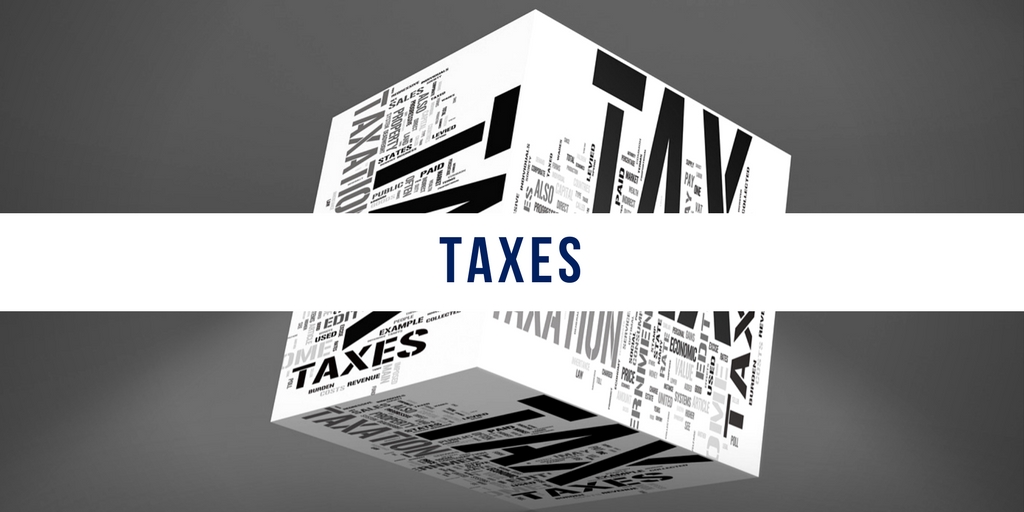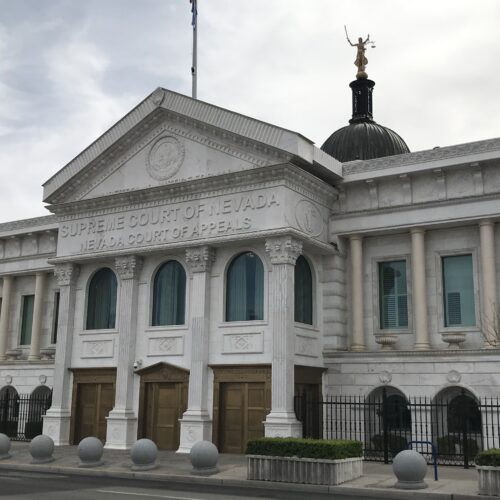
SB96 Shows Why State Employees Shouldn’t Serve in Legislature
The current legislative proposal to raise Nevadans’ property taxes highlights why government employees should not be permitted to serve as state legislators. Introduced by Sen. Dina Neal, Senate Bill 96 would mandate that Nevadans’ property taxes increase 3 percent every single year.
Current law protects residents from the relentless increases that Sen. Neal would like to see implemented, but only in those rare years when property values are either declining or otherwise growing at a rate of 3 percent or less, and inflation is atypically low. Currently, property taxes increase by an amount equal to either the growth rate of assessed property values, or an amount double the rate of inflation, whichever is greater.
The law also imposes a three percent cap on the annual increase of property taxes for certain single-family residences. Thus, because the formula outlined above almost always produces a value greater than 3 percent, property taxes have increased 3 percent every year since 2006, except for 2017 and 2018. In those two years, declining property values and a low rate of inflation meant that property taxes in Clark County increased by only 0.2 percent and 2.6 percent, respectively.
Yet, property values fell by 2.7 percent and 2.8 percent in those two years, meaning that homeowners were still hit with higher property tax bills even as their property value declined, and inflation remained low. The 2018 year is particularly instructive, as it demonstrates how the current formula still overwhelmingly benefits government at the expense of taxpayers. In that year, as housing prices fell by 2.8 percent and inflation grew at a rate of 1.3 percent, Clark County taxpayers still saw a 2.6 percent increase in their property tax bills.
Yet Sen. Neal apparently thinks that disparity isn’t large enough and wants to make sure homeowners see a 3 percent annual increase in their tax bill regardless of how much their property values are declining. But why should Nevadans be forced to pay higher taxes when their property values are declining, and inflation is low?
Consider how this environment impacts the two competing interest groups – taxpayers and government agencies. Low inflation means that most taxpayers will see low rates of pay increases, thus making a mandatory 3 percent annual increase in their tax bill that much harder to bear. Government agencies, by contrast, benefit from low inflation, as that means their costs are remaining low and there is little genuine need for increased funding.
Property taxes are especially pernicious because they often impose real, non-refundable costs on paper gains. Few know this fact better than Clark County residents who lived through the housing bubble of the 2000s, where soaring property values led to higher property taxes, only for those paper gains to vanish after the 2009 collapse. There was, of course, no refund for those residents who paid higher tax bills due to those illusory gains.
By mandating 3 percent annual property tax increases even when home prices are declining and inflation low, SB96 would only amplify this inequity.
That’s not to say that no one benefits from SB96. Government agencies will certainly benefit by being able to take more money from taxpayers each year, even during economic recessions when property values are falling, and Nevadans are struggling. Sen. Neal’s bill, therefore, is a straightforward question of deciding whose interests matter more: taxpayers or government agencies.
Most would agree that allowing the government to make that decision would be incompatible with our system of representative government and the concept of a free society generally. Indeed, we are told that our system of government is legitimate because it is the people, through their elected representatives in the legislature, who retain ultimate control and authority over the government.
But what if the Nevada Legislature was comprised entirely of government employees who would professionally benefit from making SB96 law? Would that vote reflect the will of the people, or would it reflect the priorities of government? It was precisely to ensure that the people remain sovereign, and that the government serves them, rather than the other way around, that the framers of the Nevada Constitution forbid legislators from exercising “any” non-legislative function of government.
The natural implication of this separation of powers clause is that those tasked with non-legislative governmental functions, like government employees, cannot simultaneously serve as the state legislators responsible for overseeing and regulating the government.
Unfortunately, this prohibition on legislative dual service has never received judicial enforcement. Consequently, there are today several government employees serving as state legislators, including several government employees whose employers would directly benefit if SB96 becomes law.
As a taxpayer advocate, Nevada Policy believes that SB96 is bad policy. We understand that government agencies and their many professional lobbyists feel differently, of course. And they certainly have every right to make their case for higher taxes to the people’s representatives in the Nevada Legislature.
But it is fundamental to our system of representative government, and a free society generally, that those legislators making the final call serve the people, not government. And that simply cannot happen if government employees are permitted to simultaneously serve as state legislators.
It is for this reason that Nevada Policy has filed a lawsuit asking the Nevada Supreme Court to enforce Nevada’s constitutional separation of powers doctrine. In construing their near identical provisions, the state supreme courts of Oregon and Indiana both held that their state’s respective separation of powers doctrine barred government employees from serving as state legislators.
For our system of representative government to maintain its legitimacy it is imperative that, when hearing our case later this year, the Nevada Supreme Court does the same.
Robert Fellner is Vice President of the Nevada Policy Research Institute. A condensed version of this commentary first appeared in the Las Vegas Review-Journal.
